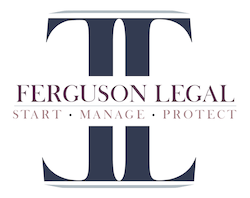Contracts often become an afterthought in fast-paced tech environments. As a result, developers and entrepreneurs often fall into the trap of prioritizing speed over clarity. This decision to rush into a contract often leads to expensive disputes down the road.
Risks from Vague Agreements
Many contracts miss clauses addressing intellectual property (IP) ownership, termination terms, or profit-sharing arrangements. Other contracts have these clauses, but the rights and obligations in these clauses aren’t adequately accounted for. A missing or inadequate IP clause can lead to someone else claiming ownership of your project. Understanding how to interpret IP clauses can help you avoid drawn out legal disputes and litigation over who owns your project and empower you to request clarification on any confusing clauses. Once a contract is signed, it can be very difficult and expensive to get out of it, so it is best to only sign contracts you understand.
Example of a Contract Dispute
Let’s say a Tampa-based entrepreneur hired a developer as a contractor to create an app, only to discover that after finishing the app, the developer sold it to his personal clients without the entrepreneur’s consent. Their verbal agreement failed to protect their ownership rights. In this example, the app may be protected with a copyright, patent, trademark and trade secret. When it comes to the copyright, because there isn’t a written contract transferring the ownership of the copyright to the entrepreneur, the developer has the right to sell the app without the consent of the entrepreneur. These types of disputes are very common and often end up in a lawsuit with both parties left dissatisfied.
Protecting Your Projects and Profits
When it comes to protecting your projects and profits, it’s also important to understand the difference between open- and closed-sourced software and how to navigate their terms of use and license agreements. While you may not always have negotiating power in these contracts, you do have buying power. With there being so many options for digital products and services, you do not always have to use the “best” or most popular one. If you decide to work with a large organization that offers closed-source or proprietary software, understand that their license agreement may not permit you to make substantial changes and modifications to their software. This is why I recommend skimming through license agreements, looking at reviews and scheduling a demo to address your questions and concerns before committing to a specific platform. If you work with a smaller, open-source software, you may have more freedom to modify and customize the software, but you may also have limited professional support, unclear or overly permissive licenses, and the challenge of ensuring long-term security and maintenance. Developers can protect their projects and profits by understanding how to navigate terms of use and software license agreements.
If you need help drafting or interpreting an IP clause or a license agreement, you can reach out to Ferguson Legal, PLLC through our contact form for a consultation.




